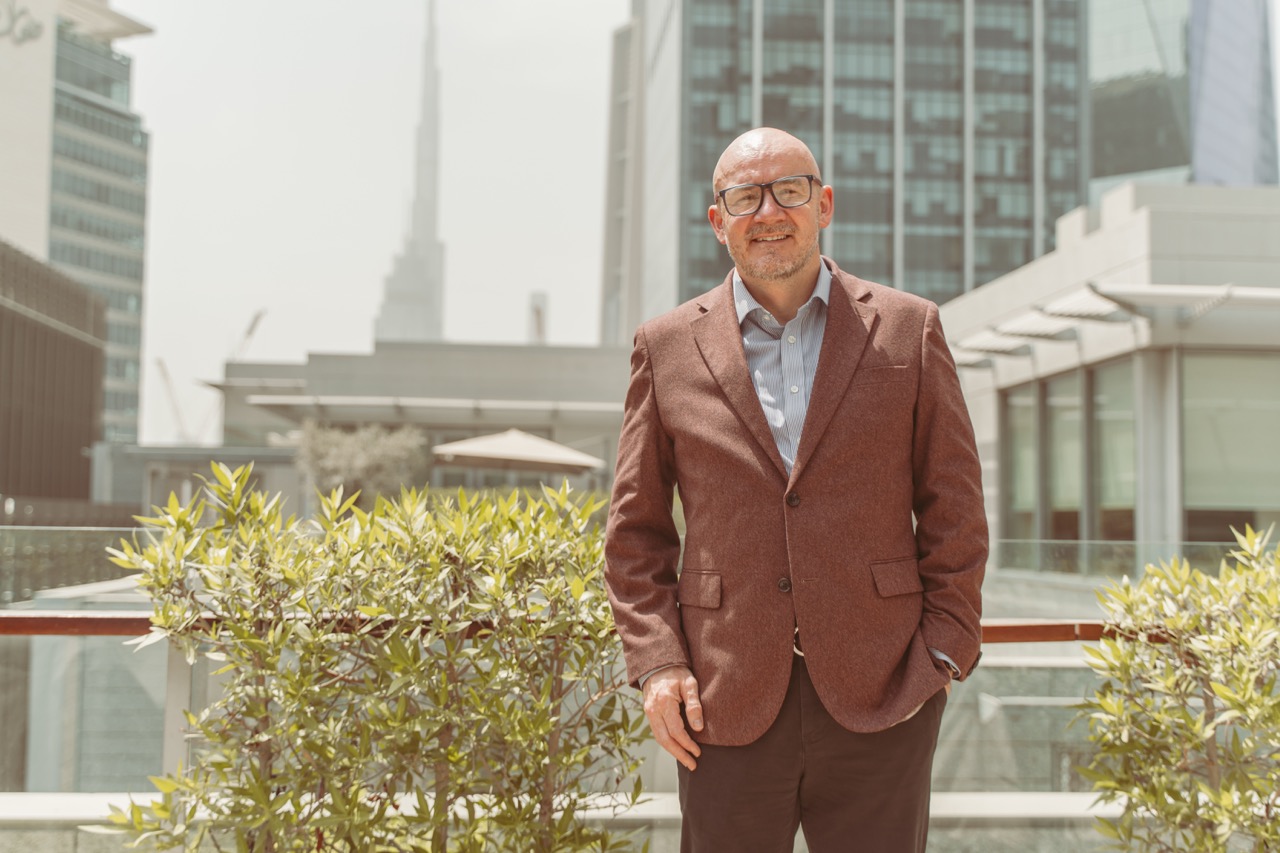Don't Go Chasing Waterfalls
Having brought the Island’s first ever digital bank to life back in 2021, Capital International Group is no stranger to managing major projects.
The launch of Capital International Bank was an enormous undertaking and with it came the adoption of a brand-new way of working for many. Initially taken up by the Technology department, ‘Agile’ methodology encourages teams to work simultaneously on different phases of a project and delivers a minimum viable product as quickly as possible, as opposed to following a more linear, step by step, Waterfall approach.

The Group has since seen Agile send ripples across the business, with several teams now benefitting from ‘sprint’ rhythms, ‘Kanban boards’ and holding daily ‘stand-ups’.
With Capital International Bank going live in 2021 and having operated successfully for over a year, the focus in terms of projects and improvements has now turned to the investment side of the business with a number of changes already underway. Capital’s Chief Investment Officer, David Long, tells us more:
How has Agile affected the Group from your perspective?
The Group has trebled in size over the last 5 years and we have taken on some massive projects – launching the Island’s first digital bank was no small undertaking and required a step change in our project management and development capability, not only in terms of people and resources but in our approach.
We quickly realised that traditional Waterfall approaches to project management were simply incapable of delivering projects of this scale and complexity in an efficient and timely manner. Even the most comprehensive plans tend to fall at the first contact with real life problems and you can end up rewriting specifications endlessly.
The use of Agile processes and management has been critical to making progress. You have to recognise that you simply do not know (and cannot know) the solutions to all the problems you face in such a complex project. The permutations are infinite, and progress is by necessity an iterative process of finding solutions to each problem that genuinely work, before moving onto the next.

It is of course vital to have a very clear vision of where you are headed, together with clear objectives for the success of any project. These keep you headed in the right direction and ensure you don’t lose perspective. Thereafter, flexibility becomes key. Define only the immediate problems that you can see clearly. Break it down into milestones and then further into small sprints with clear deliverables and regular reviews to provide a short feedback loop.
People often talk about ‘MVP’ or ‘minimum viable product’ and I cannot stress how important it is to ruthlessly cut through all the ‘nice-to-haves’ and superfluous specifications to arrive at the absolute bare minimum that you need to take that next step forward. Don’t reinvent wheels and don’t be tempted to take on too much in one go. I can assure you there is more than enough complexity in the MVP to deal with.
Of course, while each step may be small, the process is cumulative and the solutions to one problem help inform and solve the next. When you get this right it’s remarkable how rapidly progress can be made.
With the investment side of the business now having adopted the agile way of working, can you tell us what’s been achieved so far?
Over the past year, as the majority of the bank project was completed, our attention has shifted to the investment business, where we have big ambitions for the development of our investment platform and the tools we can offer our clients and advisers.
One such project has been our investment profiling application, which is truly ground-breaking in its capability. This digital tool has codified the methodology and process we use as an investment manager to identify and assess a client’s investment requirements and to match them to suitable investment strategies. The Profiler does this by modelling and projecting the spread of outcomes for all potential strategies and identifying those that best fit the client’s specific requirements.

The process is iterative and interactive, enabling a client and the adviser to effectively scenario plan into the future and develop strategies that are tailor made to meet their requirements, whist explicitly showing the client the range of possible outcomes so there are no surprises.
The MVP was delivered quickly after a 6-month build phase with fortnightly demos and feedback cycles. Since then, the internal teams have been using the Profiler and providing feedback. Being able iterate on the most basic form of the Profiler using real-world use cases has meant the result, in my view, is breath-taking. The beauty is that it’s so simple and completely intuitive to use and yet behind the charts and projections, every input triggers literally hundreds of thousands of calculations delivered instantly. In all, it has been an 18 month process to release the Profiler to our clients, but we have been using the Profiler internally for a year.
What are you working on currently?
One very recent project was an update to the look and feel of our Investment Portal to align it with the more modern UX design of our banking platform, VELTA. I’m really impressed with the new design as not only have we modernised the aesthetics of the portal, but the user experience has also been improved with an update to the navigation.
We are also working to make it possible for clients to carry out calculations within the Portal rather than having to export their data to manipulate it elsewhere. Having everything in one place will make managing accounts much easier for our clients.
You’re involved in overseeing a lot of this work but you’re also the Group’s Chief Investment Officer. Could you share your thoughts on the current market conditions?
2022 has been an incredibly turbulent year, which I would describe as the economic hangover from the extreme fiscal and monetary policies employed to see us through the COVID pandemic.
As COVID lockdowns closed large parts of the economy, the economic slack was taken up by a massive government spending financed through debt. Government debt in the UK has increased by a staggering 36%, or £600 billion since 2020.
Quantitative easing, or the printing of money, had been normalised as a central bank policy tool in the decade following the last financial crisis; however, in the wake of the pandemic, global central banks unleashed QE on an unprecedented scale. In the UK, the Bank of England’s balance sheet expanded by 86% as £500bn of QE flooded the financial markets. These extreme measures undoubtedly softened the immediate pandemic blow but they have come at a terrible longer-term cost, unleashing double digit inflation, the highest in 40 years. The speed and scale of the inflationary shock surprised markets and the turbulence we have seen is simply the market adjusting to this new environment.
How do you see your strategy evolving amongst all this turmoil?
The good news is that a sizeable adjustment has already taken place. Bond yields have risen by well over 3%. Investment grade corporate bonds offer a yield in excess of 6% and have become attractive again for perhaps the first time in a decade. Similarly, valuations of equities and other risk assets have fallen to much more reasonable and sustainable longer-term levels.
For investors, this means that expected returns looking forward have actually increased very materially over the past few months. Of course, there remain significant economic challenges ahead, with recessions almost certain in Europe and likely in the US, so further market turbulence is entirely possible. However, for long term investors this presents opportunities to acquire good quality stocks at relatively cheap valuations.
Do you have any big plans within the Investment Management department?
With support from the front office teams, we’ve recently been working to carve out a new investment identity that summarises our team’s approach in a way that our clients can easily get to grips with.
This isn’t about changing the way we invest but formalising a lot of the great work the team has already been doing. It’s only natural that our investment approach has evolved over time and this project has been about getting it down on paper in a format that’s easy to understand. The concept and messaging that we’ve arrived at, we believe, encapsulates our thinking well and clearly communicates our belief that sustainability and long-term profitability are not mutually exclusive ideas but go hand in hand. This project is still being worked on but we look forward to sharing more with you in the new year.
The views, thoughts and opinions expressed within this article are those of the authors and not those of any company within the Capital International Group (CIG) and as such are neither given nor endorsed by CIG. Information in this article does not constitute investment advice or an offer or an invitation by or on behalf of any company within the Capital International Group of companies to buy or sell any product or security or to make a bank deposit.
Regulated investment and banking activities are carried out on behalf of Capital International Group by its licensed member companies. All subsidiary companies are represented under the Capital International Group brand.
Capital International Limited, Capital Financial Markets Limited, and Capital International Bank Limited, are licensed by the Isle of Man Financial Services Authority. Capital International Limited is a member of the London Stock Exchange. Capital International Bank Limited is a wholly owned subsidiary of Capital International Group Limited (www.capital-iom.com), a privately owned financial services group based in the Isle of Man and operates as a non-retail, restricted deposit taker under a Class 1 (2) licence. Deposits are not covered by the Isle of Man Depositors’ Compensation Scheme and terms and conditions apply.
CILSA Investments (PTY) Ltd (FSP No. 44894) and CILSA Solutions (PTY) Ltd (FSP No. 6650), t/a Capital International SA are licensed by the Financial Sector Conduct Authority in South Africa.















